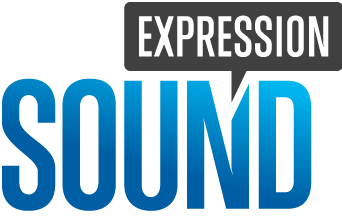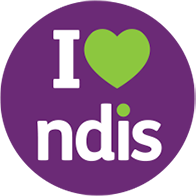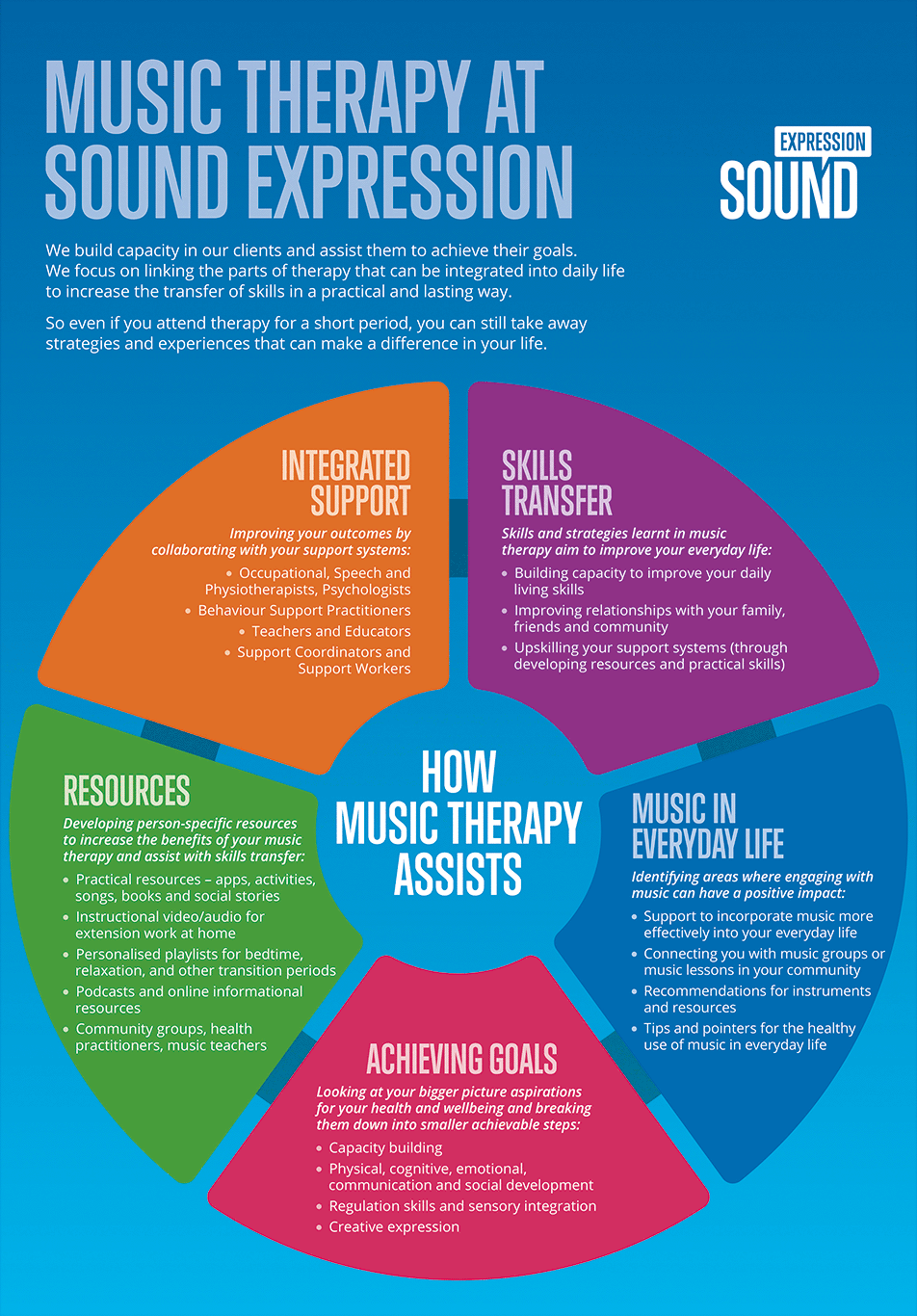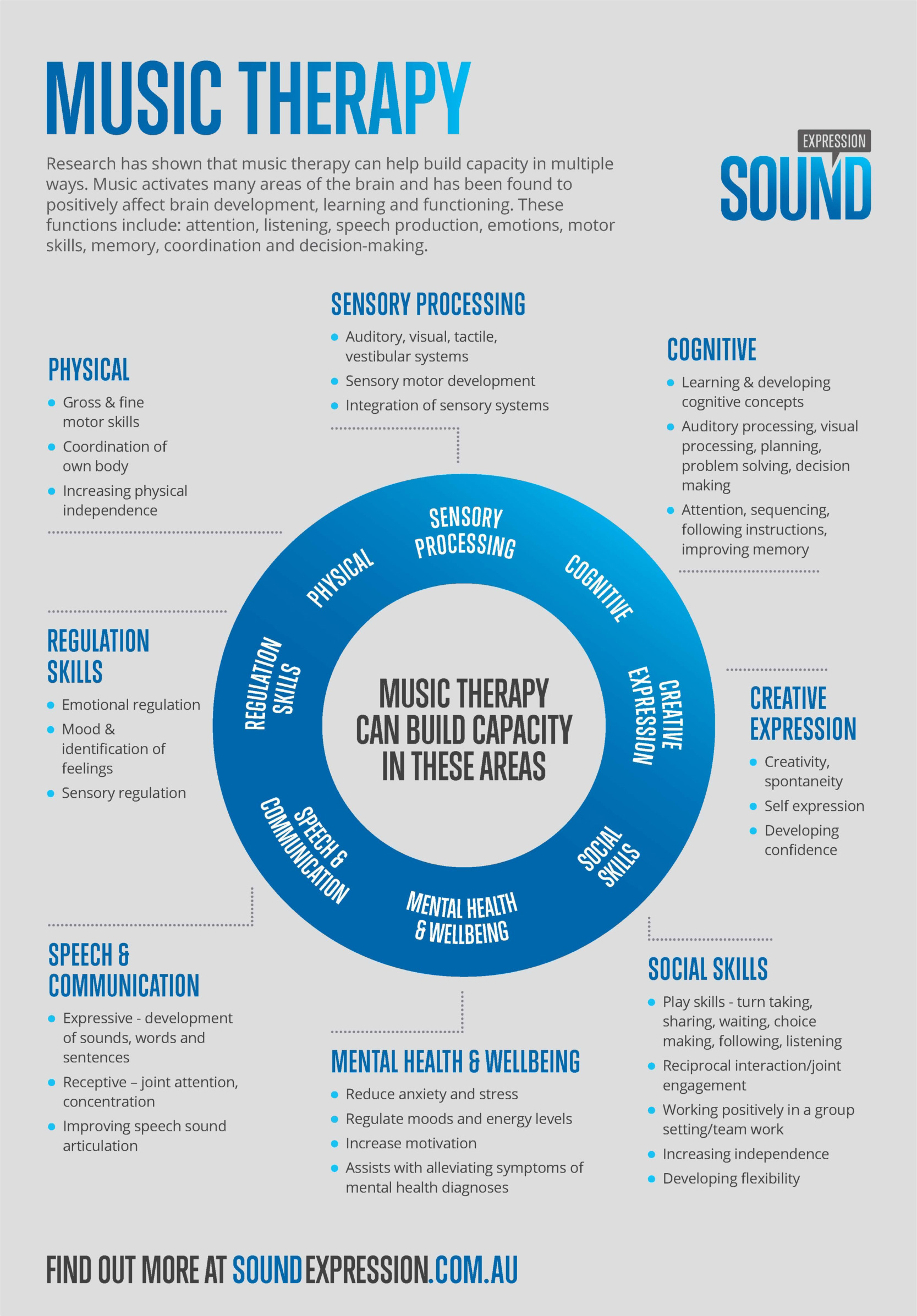WHAT IS MUSIC THERAPY?
The Australian Music Therapy Association defines music therapy as:
“Music therapy is a research-based practice and profession in which music is used to actively support people as they strive to improve their health, functioning and wellbeing.
Music therapy is the intentional use of music by a university-trained professional who is registered with the Australian Music Therapy Association Inc. Registered music therapists draw on an extensive body of research and are bound by a code of ethics that informs their practice.
Music therapists incorporate a range of music making methods within and through a therapeutic relationship. They are employed in a variety of sectors including health, community, aged care, disability, early childhood, and private practice. Music therapy is different from music education and entertainment as it focuses on health, functioning and wellbeing.
Music therapists are committed to supporting people of any age and ability regardless of musical skill, culture or background”
(Australian Music Therapy Association)
How Music Therapy Assists
How can Sound Expression assist MY child’s development?
There is a large body of research that describes how music affects the brain and how music can assist children. Music activates many areas of the brain and has been found to positively affect early childhood development, learning and daily functioning. These functions include attention, listening, speech production, emotions, motor skills, memory, coordination and decision making.
Through music therapy, we can address developmental goals such as:
Sensory Motor & Integration
- Fine and gross motor coordination
- Coordination of own body
- Integration of sensory systems
Comprehension & Cognition
- Learning cognitive concepts such as loud, soft, fast, slow
- Sequencing
- Following instructions
Communication
- Pre-verbal (joint attention, concentration)
- Explore vocal sounds
- Develop the ability to vocalise with intent
- Development of sounds, words and sentences within a musical setting
- Verbal skill & language
Social Skills
- Turn-taking
- Listening to others
- Working positively in a group setting
Self-expression
- Creativity
- Spontaneity
When your child becomes active in music-making, they are personally involved in a musical experience – tempo, rhythm, melody and harmony. Music can engage your child directly regardless of any conditions which restrict their lives.
In music therapy your child is invited to sing, to play on a wide variety of instruments and also to engage in a variety of movement activities with the therapist.
As an established health profession, music therapy creates a therapeutic relationship that addresses physical, psychological, emotional, cognitive and social needs of children through music in a fun, interactive way.
Watch our session videos to see how music therapy supports our clients
What does music therapy involve?
1. Initial assessment: we discuss with the parents and assess the child within a music therapy setting to determine the child’s current abilities and needs
2. Goal-setting: an individualised program is developed with goals based on the child’s needs.
3. Music therapy sessions: sessions consist of interactive interventions designed to address the music therapy goals. These could include singing, moving to music, playing instruments, improvising through music and song-writing.
4. Evaluation: the program is regularly evaluated to ensure it is meeting the identified goals.
Sessions are 30-45 minutes duration and are conducted on a weekly basis.
HOW DO I GET my child started?
To start music therapy at Sound Expression, please complete our Music Therapy Referral Form. Once submitted, we will contact you to arrange an Initial Consultation with one of our therapists.



